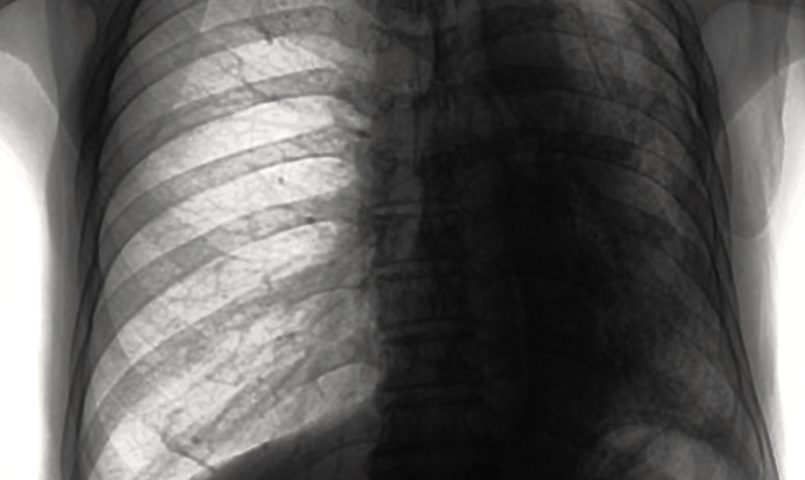Doctors in India report the unusual case of a 40-year-old woman afflicted with pleuroperitoneal mesothelioma, a rare form of mesothelioma that affects both the pleura and the peritoneum.
Their study, “Pleuroperitoneal Mesothelioma: A Rare Entity on 18F-FDG PET/CT,” appeared in the Indian Journal of Nuclear Medicine.
Malignant mesothelioma is a rare type of cancer that may either affect the membranes lining the chest cavity (pleural mesothelioma) or, less frequently, the layer lining the abdominal and pelvic cavities (peritoneal mesothelioma). Patients with peritoneal mesothelioma usually survive longer than those with pleural mesothelioma. But a combination of the two (known as pleuroperitoneal mesothelioma) is extremely rare, and only a few cases have been reported worldwide.
In this case, the woman had malignant pleural mesothelioma, despite never having been exposed to asbestos. Upon arrival at New Delhi’s All India Institute of Medical Services, she received a positron emission tomography (PET)/computed tomography (CT) examination, in order to assess disease response following chemotherapy.
In the exam, doctors used F-18-Fluorodeoxyglucose (FDG), a radiopharmaceutical used in medical imaging with PET scans that is absorbed by cancer cells. Usually, the higher the uptake of FDG during a PET/CT scan, the poorer the patient’s prognosis.
Results showed that the woman had an irregular mass-like thickening involving the right parietal and visceral pleura, which was leading to collapse of the affected lung. She also had a diffuse peritoneal thickening; a peritoneal biopsy confirmed the presence of peritoneal mesothelioma.
“Malignant peritoneal mesothelioma accounts for about 12.5 to 25 percent of malignant mesotheliomas,” researchers wrote. “It usually occurs in middle-aged men who commonly complain of abdominal pain or a feeling of fullness, abdominal distention or increasing abdominal girth, nausea, anorexia and weight loss.”
They added that FDG PET/CT is more accurate when evaluating treatment response in malignant mesothelioma.
“This case further confirms the role of FDG PET/CT in detecting the extent of the disease by simultaneous detection of pleural and peritoneal lesion, since conventional imaging before treatment was negative in detecting peritoneal lesions,” researchers wrote. “FDG-PET/CT is a valuable imaging modality in the evaluation and management of malignant mesothelioma.”


